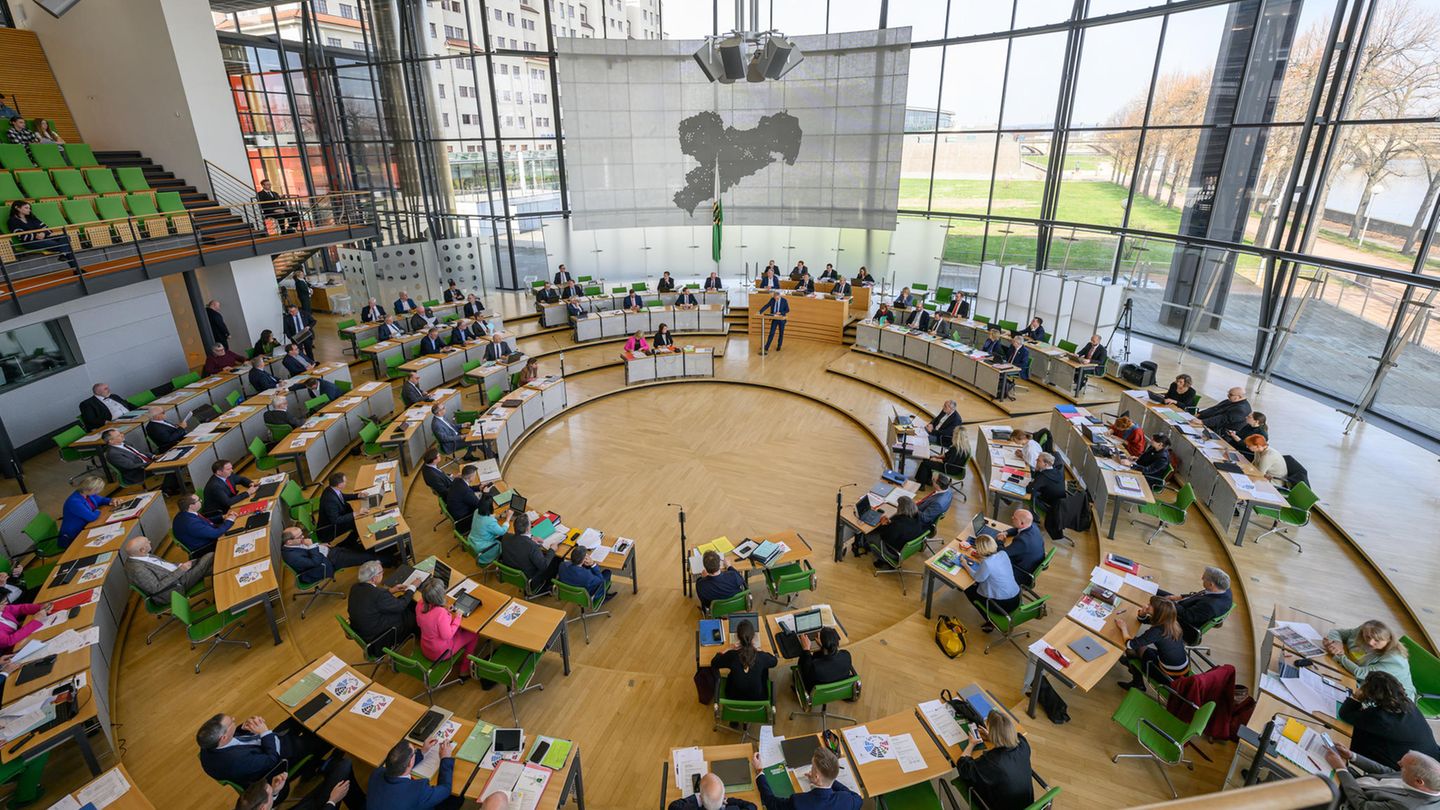The workload in the state parliaments is above average, but so is the pay. That is what the representatives of Saxony and Thuringia deserve.
Over the next five years, they will be determining the fate of the people of Saxony and Thuringia. The more than 200 members of parliament in the Dresden and Erfurt state parliaments have a job that involves great responsibility for their states – and are paid accordingly. The level of their income from political work is determined by the state parliament laws.
This is what members of the state parliament in Saxony earn
In Saxony The monthly compensation is therefore 6954.09 euros per month. The amount is based on the salary of a judge in the Free State, according to the State Parliament administration. Group leaders and the President of the State Parliament receive double the amount. The compensation should provide “a sufficient livelihood appropriate to the importance of the office.” “This ensures that the opportunity to get involved in the people’s representation is open to all citizens and is not dependent on professional income or private financial circumstances.” The income must be taxed.
In addition, the representatives receive a flat-rate allowance for expenses, for example for travel within the constituency, the maintenance of an office or a second residence at the parliamentary seat in Dresden. This amounts to – depending on the distance of the place of residence from the state capital – 3940.65 to 5152.41 eurosIt will be reduced if Members do not attend meetings. Members will also be reimbursed for the costs of employing staff up to a total of 8356.58 euros monthly. In addition, parliamentarians are allowed to use the railway in the Free State free of charge. Secondary employment is permitted, but must be registered and is subject to certain rules.
This is what state parliament members in Thuringia earn
The MPs in Thuringia receive a slightly higher compensation than their colleagues in Saxony. Here the amount is 7013.04 eurosThe flat rate is between 2402.51 euros and 3353.53 eurosalso depending on the distance of the place of residence from the state capital. In addition, the members of parliament can have the expenses for their staff reimbursed – up to a maximum of around 4600 Euro per person. In Thuringia, too, the people’s representatives are allowed to travel by train and take on secondary jobs free of charge.
In addition, there are numerous regulations in both countries regarding transitional allowances and retirement benefits.
The salaries in Saxony and Thuringia are in the same range as in most other federal states. The compensation in Hamburg is noticeably low: here, the MPs receive around 4,000 euros, but the parliament there – like the parliament in Bremen – is considered a so-called after-work parliament. The MPs often still have a conventional job.
In the German Bundestag, members receive 11,227.20 euros per month, plus the cost of official equipment and a flat-rate allowance; in the European Parliament, they receive 10,377.43 euros gross.
However, the downsides of parliamentary work are probably the same everywhere: enormous working hours, exhausting discussions and sometimes even hostility or threats.
Sources: , , ,
Source: Stern
I have been working in the news industry for over 6 years, first as a reporter and now as an editor. I have covered politics extensively, and my work has appeared in major newspapers and online news outlets around the world. In addition to my writing, I also contribute regularly to 24 Hours World.




